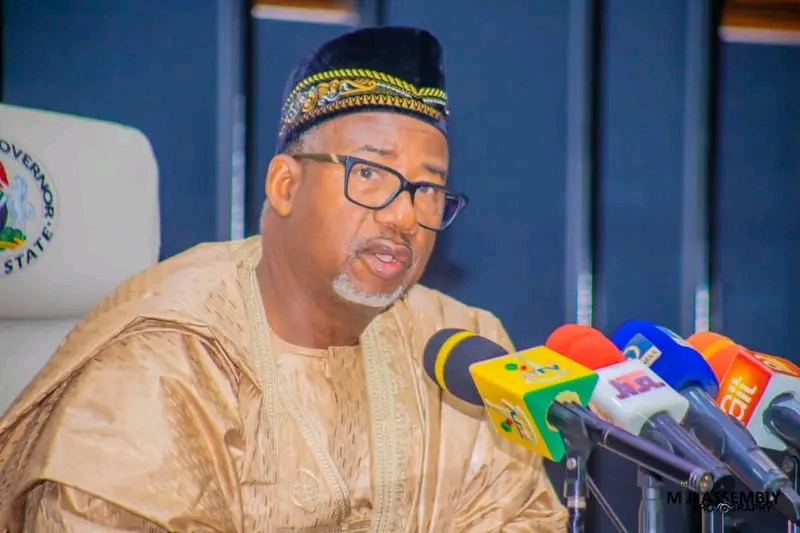Bauchi State Governor Bala Mohammed has ignited a debate within Nigeria’s political landscape by advocating for the Peoples Democratic Party (PDP) to nominate a Southern Christian as its presidential candidate for the 2027 elections. His assertion stems from a strategic assessment of the political climate and a desire to learn from the perceived missteps of the ruling All Progressives Congress (APC) in the 2023 elections. Governor Mohammed argues that fielding a Southern Christian candidate would not only address the concerns of representation and religious balance but also potentially mitigate the kind of controversy that surrounded the APC’s same-faith ticket in the previous election cycle. This proposition, however, opens up a complex interplay of regional and religious dynamics within the PDP and the broader Nigerian political arena.
Governor Mohammed’s call for a Southern Christian presidential candidate is rooted in his belief that such a move would resonate with a significant portion of the electorate, particularly in the predominantly Christian Southern region. He contends that this strategic choice would allow the PDP to present a more inclusive and representative ticket, potentially attracting voters who might otherwise be alienated by a perceived imbalance in religious representation. He implicitly criticizes the APC’s 2023 Muslim-Muslim ticket, suggesting it neglected the sensitivities of a nation characterized by religious diversity and inadvertently fueled unnecessary divisions. By advocating for a Southern Christian candidate, Mohammed positions the PDP as a party attuned to the complexities of Nigeria’s socio-political fabric.
The Governor’s proposition goes beyond simply advocating for a Southern Christian presidential candidate. He further suggests that such a candidate would ideally be paired with a Northern Muslim vice-presidential candidate. This proposed arrangement aims to achieve a delicate balance, appealing to both major religious groups and bridging the regional divide between North and South. This strategic pairing seeks to create a ticket that reflects the nation’s demographic makeup and avoids the perception of marginalizing any particular group. Mohammed’s proposal, therefore, is a calculated move to position the PDP as a more inclusive and unifying force in Nigerian politics.
While advocating for a specific religious and regional background for the PDP’s presidential candidate, Governor Mohammed maintains that the party remains open to various contenders. He emphasizes that the PDP is a platform for diverse voices and that the ultimate decision rests on the party’s internal processes. His call for a Southern Christian candidate should not be misinterpreted as a closed-door policy, but rather as a strategic recommendation based on his analysis of the political landscape. He encourages individuals from all backgrounds to participate in the party’s democratic process, reinforcing the message that the PDP values inclusivity and internal competition.
Addressing speculation about his own political ambitions, Governor Mohammed clarifies that his advocacy for a Southern Christian presidential candidate does not indicate a personal desire to become the vice-presidential nominee. He acknowledges the possibility of being considered for the vice-presidency if the party deems him suitable. However, he emphasizes his willingness to support any candidate chosen by the party, even if it means foregoing his own ambitions. This statement seeks to portray him as a party loyalist, prioritizing the PDP’s overall success over personal gain. His readiness to step aside if a more suitable candidate emerges reinforces this message of party unity and strategic thinking.
The underlying message in Governor Mohammed’s pronouncements is a call for strategic thinking within the PDP. He urges the party to learn from the perceived mistakes of the APC and to carefully consider the implications of its choices in the lead-up to the 2027 elections. By advocating for a Southern Christian presidential candidate, he seeks to position the PDP as a party sensitive to the nation’s diversity and committed to inclusive representation. Whether this strategy will resonate with the broader electorate and ultimately lead to electoral success remains to be seen, but it has undoubtedly sparked a crucial conversation within the PDP and the wider Nigerian political landscape. The debate highlights the ongoing negotiation of religious and regional identities in Nigerian politics and the strategic calculations involved in vying for power in a complex and diverse nation.














